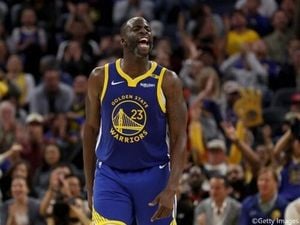At the 2024 Paris Olympics, U.S. beach volleyball players Miles Partain and Andy Benesh made headlines not just for their performance, but for their unexpected decision to part ways with their coach, Mike Placek, mid-competition. This shocking move marks the first time such an event has occurred during the Olympics, raising eyebrows and sparking speculation.
The story began when Partain and Benesh, who have shown promising potential as the youngest U.S. men’s Olympic beach volleyball team, stumbled out of the gate. Their initial Olympic match saw them suffer defeat against the Cuban duo Jorge Alayo and Noslen Diaz. A tough pill to swallow, this loss placed immense pressure on them as they eyed their next matches.
After the loss to Cuba on July 27, the pair bounced back with a 2-0 victory over Morocco, but it wasn’t without its challenges and tension evident on the court. They fought hard, clinching the second set 28-26, though their performance lacked some of the finesse expected at this elite level. Hat-tip to the sweltering heat, which at the Eiffel Tower Stadium, soared over 110 degrees, contributing to the grueling context of their matches.
Things took another turn as they prepared for their next match against Brazil when news broke during the broadcast of their game. NBC commentary revealed the duo made the unprecedented choice to fire their coach following internal discussions among the team. Commentator Dain Blanton stated during the match, “There was a team meeting and a team decision to not move forward with their coach,” leaving viewers both shocked and curious about the details.
After winning against Brazil, securing their place among the last 16 teams, Partain and Benesh issued a statement. They expressed their gratitude toward Placek, acknowledging his dedication and efforts leading up to the Olympics, yet they clarified the need for different ‘strategic paths.’ This remark left much to interpretation – Had they not seen eye to eye with Placek? Or was this simply about finding their footing as they continued to confront tough competition?
Kevin Wong, another commentator with years of experience covering Olympic beach volleyball, emphasized the extraordinary nature of this coaching change. “I don’t know if there’s ever been a coaching change within the competition itself. That’d be a first,” Wong remarked. It’s not uncommon to see teams change coaches under pressure, but to do so on such a grand stage is virtually unprecedented; the stakes are immensely higher with spectators from around the world watching every move.
The duo's new assistant coach, Paul Lotman, might step up to fill the void left by Placek. Lotman, previously part of the U.S. men's indoor volleyball team, has experience at the international level, which could provide the stability and knowledge partain and Benesh desperately need as they march forward.
What led to this sudden split? Speculation swirled around the internal dynamics of the team. Perhaps the duo’s unsettling matchup against Cuba was enough to rock the boat. Upsetting defeats often create tension, and it would not be unusual for teammates to feel frustrated under such auspices. Partain and Benesh, certainly, had every reason to feel the heat — literally and metaphorically.
Looking back on their Olympic dreams, both Partain and Benesh set out to hoist the U.S. flag high after finishing fifth at last year’s world championships, their best performance yet. They are each aware of the legacy they wish to forge not only for themselves but also for future generations of U.S. beach volleyball players. After their coaching shakeup, they remain focused and optimistic about their upcoming match against Italy’s Paolo Nicolai and Samuele Cottafava. It’s clear they still retain their determination as they head onto the sand, ready to prove their mettle once more.
With their unexpected perseverance and continuous adaptability, Partain and Benesh might just carve out their path against the odds. The Olympic stage is one they can still leave their mark on; but whether they can transform this coaching controversy from drama to victory remains to be seen. "We found our mojo again," Benesh said, expressing his confidence post-match, illustrating their desire to focus on the positives.
Reflecting on the unique circumstances surrounding these Olympics, it's hard to ignore the narratives evolving so rapidly within the global spotlight. Just as they let go of their coach, countries are also realizing the volatility of Olympic competitions, where every moment counts, and decision-making can shift the tide. The world will be watching — and waiting — to see how these young athletes handle the pressures of competition, their pasts, their decisions, and the uncertain path before them.
Will this be the start of something extraordinary for Partain and Benesh, or just another chapter of what-ifs? Only time will tell as the Olympic matches progress.



